Pets, like humans, prefer stability in their daily lives and cats are no exception to this general rule. Having a baby is certain to be disruptive not just to your life, but to the life of you cat as well.
If you want to avoid having an angry, confused kitty who urinates, scratches, or otherwise behaves out of character when the baby arrives, then you need to prepare your feline friend ahead of time.
The following nine tips can guide you in process of acclimating your cat to the newest member of your family and help to ensure that kitty adjusts well to what is sure to be a very big change.
1. Start Early
Cats are often slow to adjust to change. It can take weeks or months for some cats to become comfortable with a new pet or new person in the house. To ensure that your cat has plenty of time to adjust to the baby’s arrival, you need to start making changes as early as possible.
In fact, if you are planning to have a baby, you’ll want to start acclimating your kitty even while you are trying to conceive.
2. Build a Special Place
Cats like their privacy. Even affectionate, people-friendly cats will need a place to call their own. Long before baby arrives, you will want to find a safe place in your home where your cat can go to escape the hustle and bustle of life.
It needs to be a quite place where your cat won’t be disturbed, especially when people come to “ooh” and “aw” over the new baby. Stock your kitty’s special place with food, water, a favorite blanket, and toys.
Whatever you do, remember that this place is a safe haven, so don’t make drastic changes to it or chastise the cat in this location.
More: 9 Items of Home Decor for Pets
3. All Changes Should Be Gradual
Changes to the order and structure of your home will be inevitable with the arrival of a baby. There will be new furniture, new toys, perhaps new pain, and even construction in some cases.
Make these changes as gradually as possible and then, once the changes are complete, play with your cat in the new areas to promote positive feelings about them. You can’t avoid all of the stress associated with change, but making it gradual gives your cat time to explore alterations as they happen and thus feel more secure about them.
More: 10 Ways Pets Improve Your Health
4. Alter Sleeping Arrangements
If your cat is used to sleeping with you, you need to change that long before the baby arrives. You will want your cat to be used to sleeping on its own so that both of you get better rest and so that you can avoid, during pregnancy, the potential for exposure to pathogens that all cats carry.
Once the baby is older, you may want to let your cat back into the bedroom. During pregnancy and the first year of your baby’s life, it is better if your cat sleeps somewhere other than your bedroom.
More: 9 Tips for Bringing a New Kitten Home
5. Prepare for Baby Sounds
As far as your cat is concerned, a baby can make some pretty harrowing noises. You need to prepare your cat for the crying and screaming that is certain to come with a newborn through the use of a recording of baby cries and screams.
Start with the volume very low and gradually increase it over time. This sort of exposure therapy is also useful for other sounds, like music mobiles and toys, that will be a big part of your baby’s life.
More: 10 Easy Ways to Save on Pet Costs
6. Prepare for Baby Smells
Cats have a sense of smell that is roughly fourteen times greater than that of humans. They use it for locating food, finding a mate, establishing territories, and locating predators. Babies bring loads of new smells with them and though they may seem mild to us, they can put a cat on edge.
Things like lotions, powders, and other baby products are easy to purchase ahead of time so that your cat can get used to them. Other things, like diapers, may not be as easy to find ahead of time. Be sure to keep dirty diapers safely locked up to avoid problems with your cat.
When the baby is born, and before you bring baby home, take a blanket or something else that has been used to wrap the baby and bring it home. Let the cat smell it and be affectionate while he or she does so. If you do this, then the new baby smell won’t be a huge surprise.
More: 8 Ways to Organize Your Pet
7. Ensure a Quiet Introduction
The introduction between baby and cat should be calm and quiet. That means that you need to ensure that no one else is around during the first meeting and that both your baby and your cat calm.
Even for a cat that has been acclimated to crying and other baby sounds, a first encounter with a real crying baby can be stressful. To promote good feelings, introduce the two when both are calm.
More: 10 Most Unique Pets You Can Own
8. Maintain Scheduling
You must, no matter how little time you have when the baby arrives, keep your cat’s schedule intact. That means feeding kitty at the same times, ensuring kitty has food and water, and playing with kitty on a regular basis.
If your cat starts to feel neglected, then he or she may strike out at you, the furniture, or the baby.
More: 10 Best Cat Breeds for Children
9. Restrict Access
No matter how much you trust your cat, don’t leave your baby and your cat alone together. All interactions should be supervised.
Cats don’t know how to act appropriately with children and children need to be taught how to interact appropriately with cats. It isn’t that either is trying to hurt the other, but more the fact that things can go wrong and one or both could be unintentionally injured.
Many parents will leave the door to the nursery open at all times to ensure they can hear their baby. This is a bad idea with a cat around. The options in this case are to install a screen door on the baby’s room or to keep the door closed and use a baby monitor. Whatever choice you make, you need to have a way of separating your cat and your baby that doesn’t involve locking kitty up.
With cats, the general rules are always to make changes slowly and give your kitty time to adjust to major life events. Your goals are to create positive associations with the new baby and to avoid negative connections. Don’t scold that cat or chase it off when it comes near the baby; give it supervised access. Make sure that your cat knows that it still has a happy, loving home even with baby around. If you do that, then everyone will get along just fine.

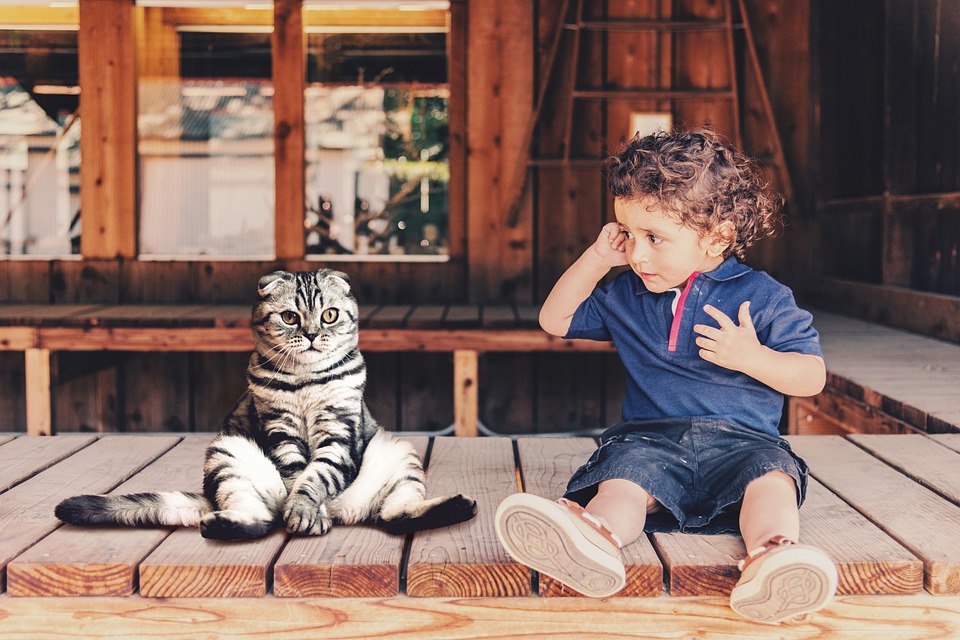



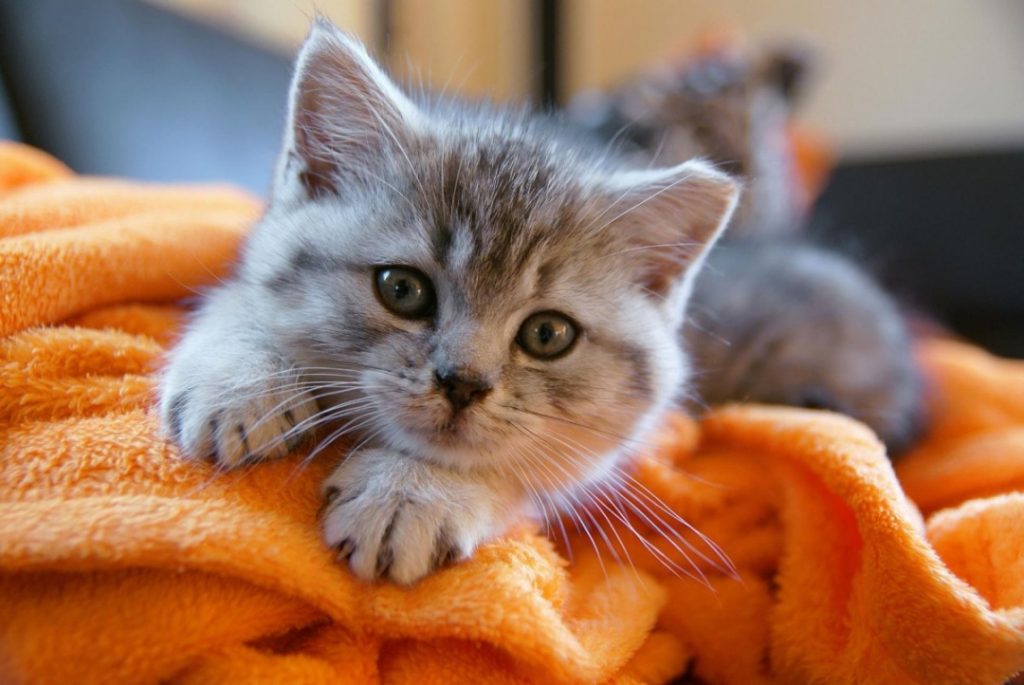


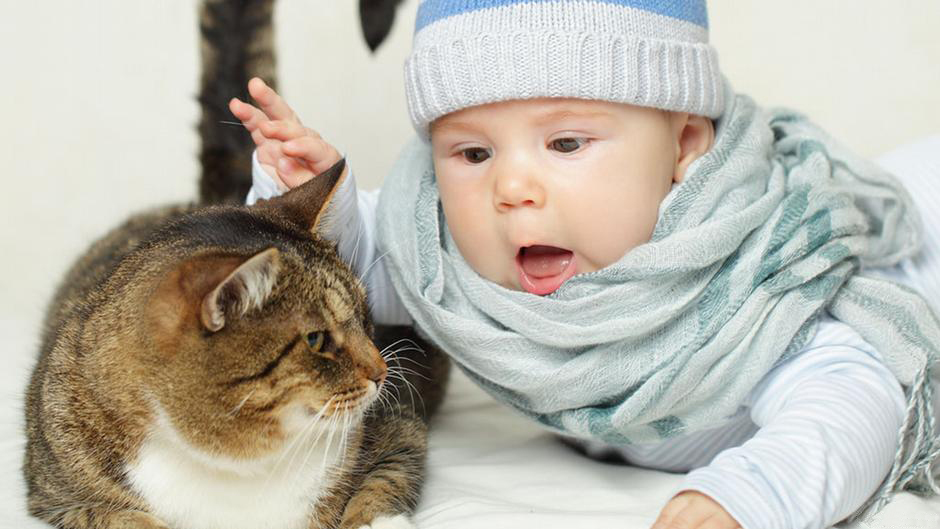
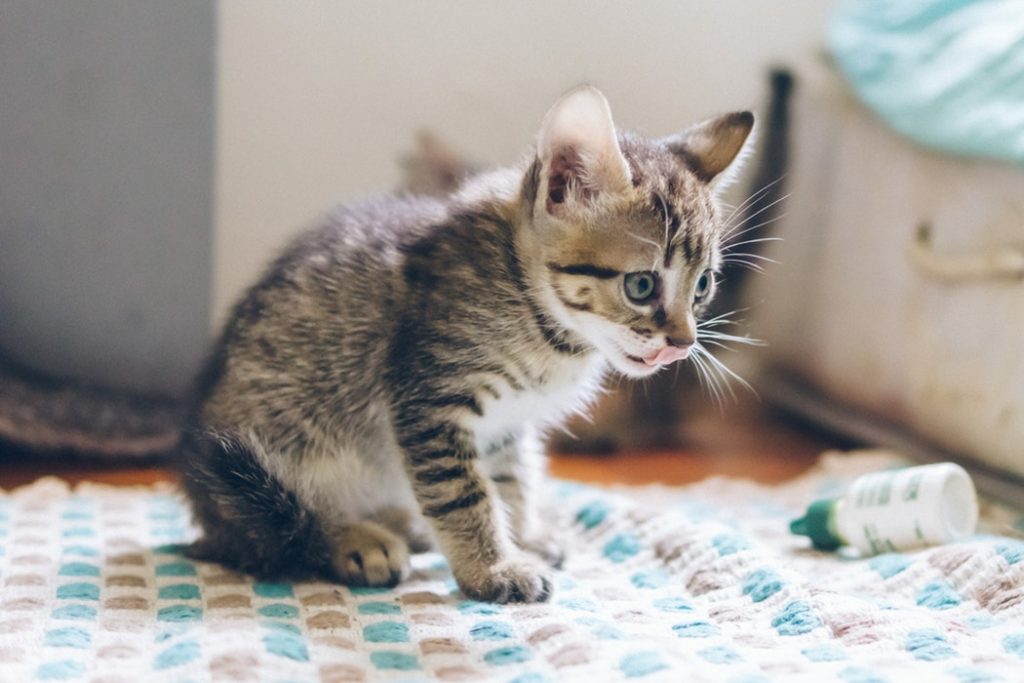
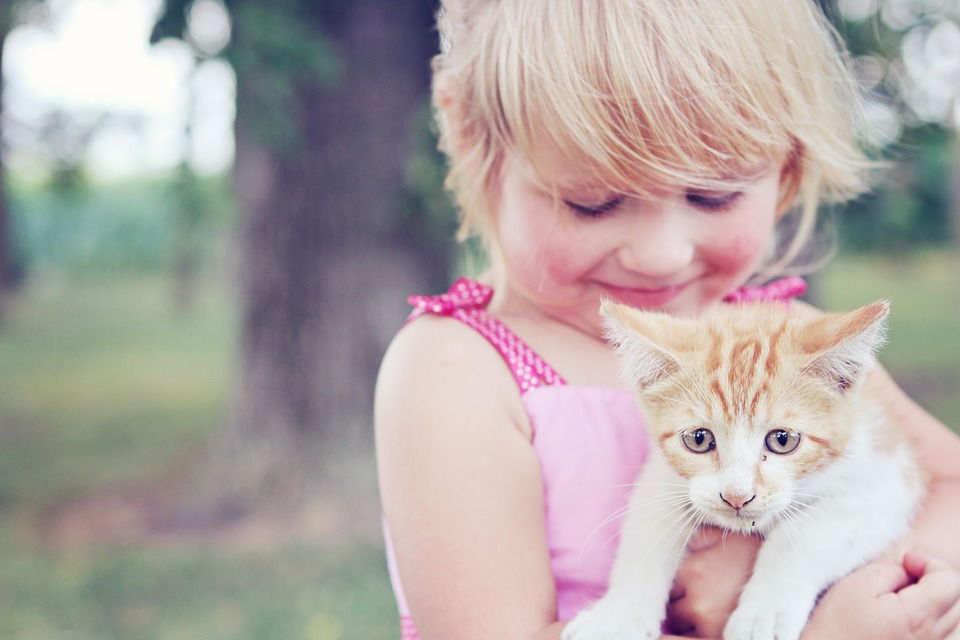






Comments